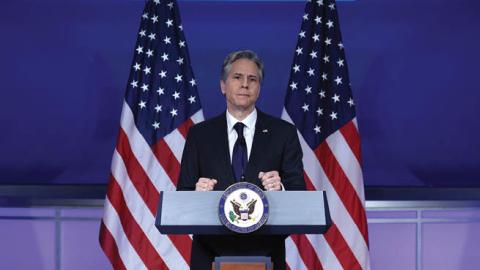Secretary of State Antony Blinken gave his long-awaited speech laying out the Biden administration’s China policy last week at George Washington University. It was a clear statement of American national strategy that will be closely read by foreign ministries and leaders around the world. Since 1945, Mr. Blinken said, America and its allies have built a global order that has to a large degree kept the peace and promoted the well-being of people around the world. The system needs to be modernized and reformed, but the defense of that system remains the cornerstone of President Biden’s foreign policy.
No country, Mr. Blinken said, had benefited from this order more than China, whose current power and prosperity were due to the opportunities the American-backed system offered for growth through trade. Rather than using its power to uphold and develop the world system, however, China has chosen to challenge it. Calling the 2020s a “decisive decade,” Mr. Blinken pledged to work with American allies to compete effectively with China economically, diplomatically and militarily to ensure the survival and prosperity of the current world system.
The speech didn’t go over well in Beijing. In Foreign Ministry spokesman Wang Wenbin’s words, the rules-based international order that the U.S. claims to defend “is nothing but a set of ‘house rules’ established by the US and a handful of other countries to maintain the so-called ‘order’ led by the US.” As for American plans to create and strengthen alliances and trading relations capable of balancing Chinese power, Wang Wenbin fumed that “forging ‘small blocs’ is against the trend of history. . . . This move to gang up on China will get no support and is doomed to fail.”
Read the full article in the Wall Street Journal

















